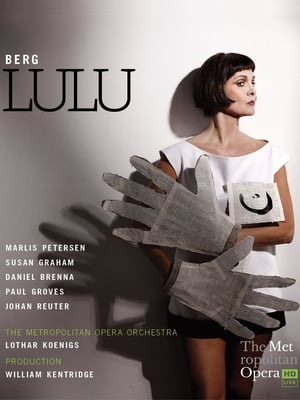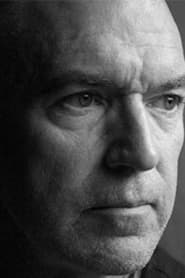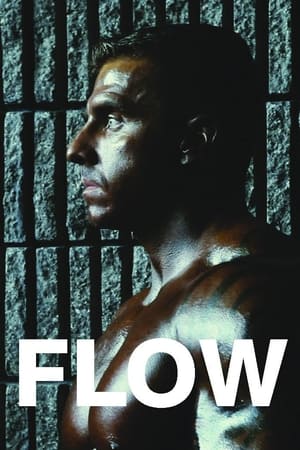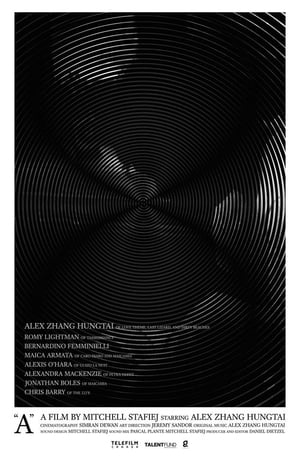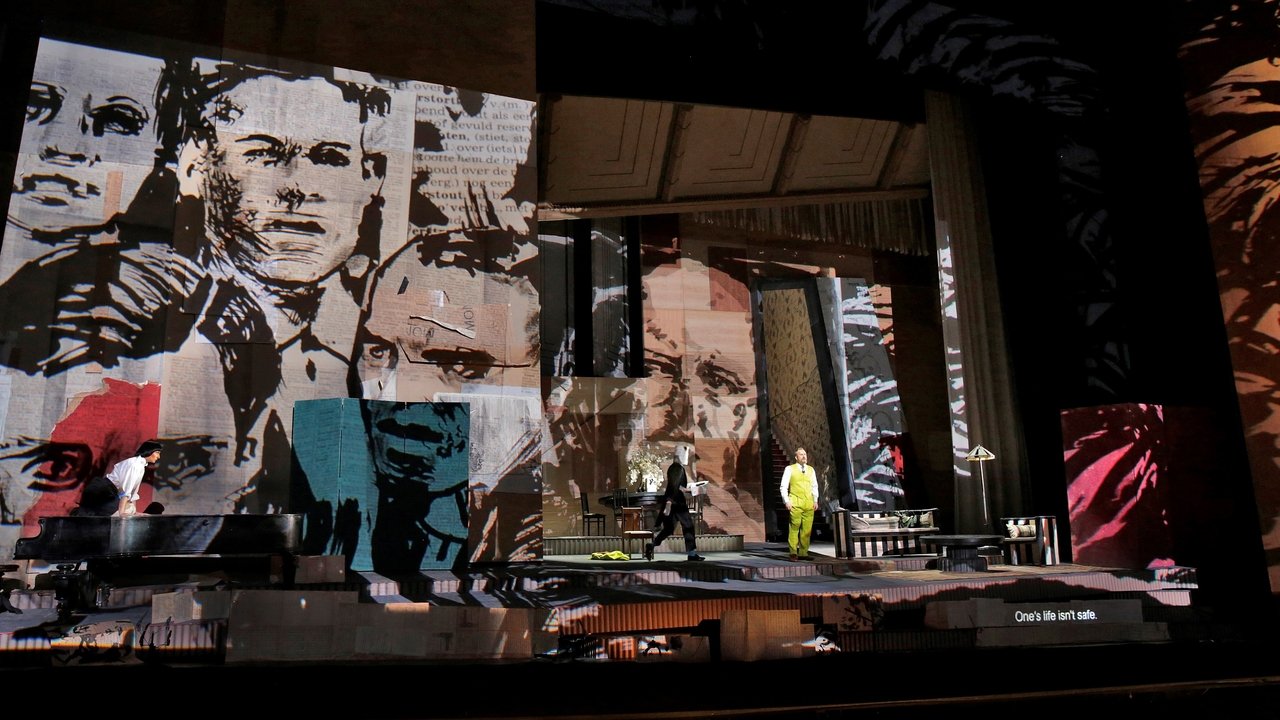
The Metropolitan Opera: Lulu(2015)
William Kentridge’s multi-layered production of Berg’s masterpiece stars charismatic soprano Marlis Petersen in the title role—the enigmatic and alluring woman who is equal parts femme fatale, innocent girl, and abused victim. The men around her, whose lives she forever alters, are Johan Reuter as newspaper publisher Dr. Schön; Daniel Brenna as his composer son, Alwa; Paul Groves as the Painter; and Franz Grundheber as Schigolch. Susan Graham sings Countess Geschwitz, and Lothar Koenigs conducts Berg’s landmark score.
Movie: The Metropolitan Opera: Lulu
Top 10 Billed Cast
Alwa Schön
Schigolch
The Acrobat / The Animal Tamer
The Painter / African Prince
The Wardrobe Mistress / The Schoolboy / The Page
The Theater Manager / The Banker
All 6 videos
Recommendations Movies
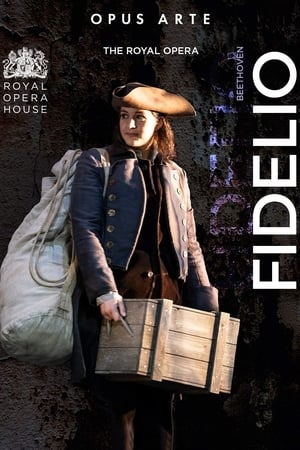 6.0
6.0Beethoven: Fidelio(de)
Beethoven’s only opera is a masterpiece, an uplifting story of risk and triumph. In this new production, conducted by Antonio Pappano, David Butt Philip plays the political prisoner Florestan, and Lise Davidsen his wife Leonore (disguised as ‘Fidelio’) who daringly sets out to rescue him. Set in strong counterpoint are the ingredients of domestic intrigue, determined love and the cruelty of an oppressive regime.
 6.4
6.4Eye for an Eye 2(zh)
The blind swordsman, skilled in martial arts, named Cheng Xiazi (Xie Miao), accidentally saves Zhang Xiaoyu (Yang Enyou), who has suffered from the destruction of his family. Under the persuasion of the orphan Xiaoyu, Cheng reluctantly keeps him by his side and teaches him skills. Xiaoyu also waits for the opportunity to seek revenge.
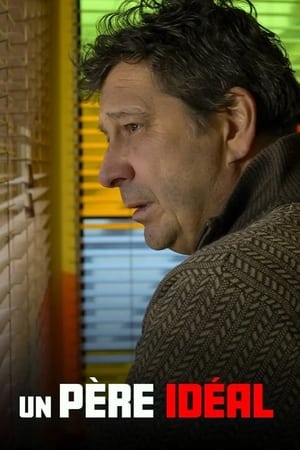 6.3
6.3An Ideal Father(fr)
Michel, the jovial owner of the only café in a small Normandy town, sees his life turned upside down when his teenage daughter is murdered. The community has his back but soon rumor spreads and Michel is singled out. From the ideal father, he becomes the ideal culprit.
 6.9
6.9Old Man Junior(en)
Morbius Jr, now an OId Man, is nearing the end of life, when he finds the last hope for all Morbkind. However, as he fights to protect the future of Morbheads, he finds himself facing off against an unlikely of enemy... HIMSELF.
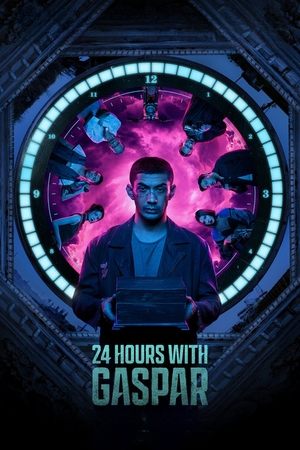 6.6
6.624 Hours with Gaspar(id)
With only 24 hours left to live, a private investigator follows a trail of confounding clues to uncover the disappearance of his childhood friend.
 7.3
7.3Will & Harper(en)
When Will Ferrell's good friend Harper comes out as a trans woman, they take a road trip to bond and reintroduce Harper to the country as her true self.
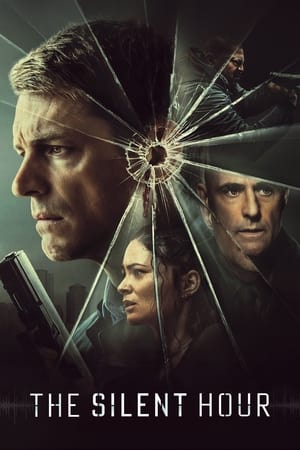 6.5
6.5The Silent Hour(en)
While working a case as an interpreter, a hearing-impaired police detective must confront a group of criminals trying to eliminate a deaf murder witness in her apartment building.
 5.9
5.9A(ja)
Roughly chronological, from 3/96 to 11/96, with a coda in spring of 1997: inside compounds of Aum Shinrikyo, a Buddhist sect led by Shoko Asahara. (Members confessed to a murderous sarin attack in the Tokyo subway in 1995.) We see what they eat, where they sleep, and how they respond to media scrutiny, on-going trials, the shrinking of their fortunes, and the criticism of society. Central focus is placed on Hiroshi Araki, a young man who finds himself elevated to chief spokesman for Aum after its leaders are arrested. Araki faces extreme hostility from the Japanese public, who find it hard to believe that most followers of the cult had no idea of the attacks and even harder to understand why these followers remain devoted to the religion, if not the violence.
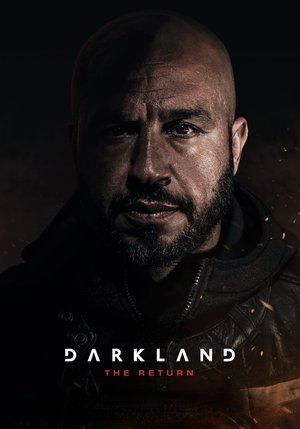 6.4
6.4Darkland: The Return(da)
Seven years ago, Zaid went to war against the Copenhagen underworld to avenge his dead brother. His identity as a respected doctor of cardiology and life as a family man is but a fading dream, and in prison Zaid suffers the loss of his son Noah, whom he barely knows. When a police agent approaches Zaid and offers him a deal to be released in exchange for infiltrating the Copenhagen underworld, he sees his chance to reclaim the remnants of the family life he left behind. But everything has a price, and Zaid realizes that he has now seriously endangered his son's life. After all, once you become part of the underworld, is there any way out?
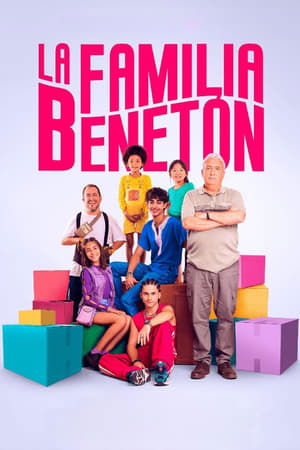 5.4
5.4The Benetón Family(es)
Toni, a grumpy in his fifties, avoids children at all costs. His life changes when he suddenly has to take care of his sister's five adopted children, each from a different country. Toni will have to deal with new parenthood and cultural differences.
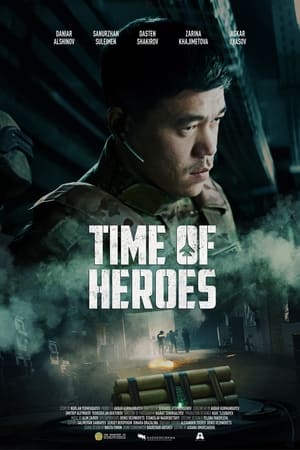 7.5
7.5Patriots Time(ru)
The brothers Sultan and Bekzat Ibrayev are serving faithfully in the Armed Forces of Kazakhstan, and at the same time they are in family disagreement. Sultan is a valiant intelligence officer and Bekzat is a talented fighter pilot. While an international terrorist organization prepares a carefully planned attack on the country's strategically important facilities, the brothers have to face not only a mortal threat, but also face a family confrontation related to their dead father. Circumstances force them to unite in order to save human lives, and the brothers eventually understand that their homeland and family are the most valuable thing they have.
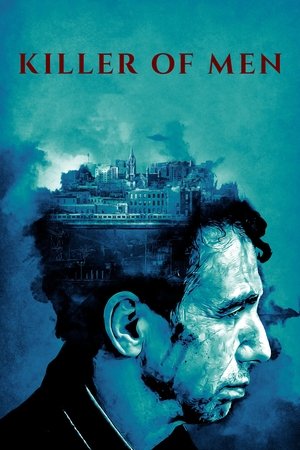 7.3
7.3Killer of Men(en)
A man lurks the night alleys, killing people at random, he feels nothing, no emotion, and no pain; when he meets a graceful widow he must confront what it means to be human.
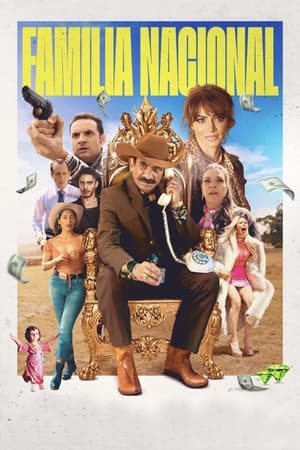 6.7
6.7National Family(es)
Don Poli, the patriarch of a family embedded in politics, faces the change of party in his state - after a hundred years in power - losing all his privileges. Humiliated and angry, he threatens to disinherit his family and leave to rebuild his life. This forces his children (Kippy, Ramses and Belén) to take extreme measures to ensure their future, causing everything that could go wrong to turn out worse.
 7.0
7.0Solo Leveling -ReAwakening-(ja)
Over a decade after 'gates' connecting worlds appeared, awakening 'hunters' with superpowers, weakest hunter Sung Jinwoo encounters a double dungeon and accepts a mysterious quest, becoming the only one able to level up, changing his fate. A catch-up recap of the first season coupled with an exclusive sneak peek of the first two episodes of the highly anticipated second season in one momentous theatrical fan experience.
 7.4
7.4My Name Is Loh Kiwan(ko)
After defecting from North Korea, Loh Kiwan struggles to obtain refugee status in Belgium, where he encounters a dejected woman who has lost all hope.
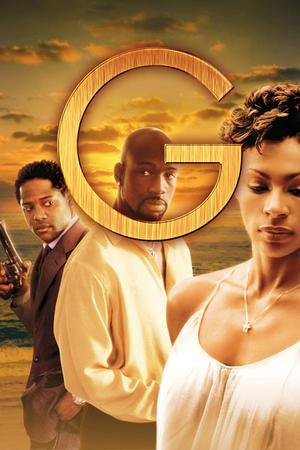 6.6
6.6G(en)
A young Hip Hop star named Summer G falls for a middle to upper class sister while in college. After she rejects him for a fellow social climber, Summer G spends ten years building a Hip Hop empire, then moves to the Hamptons where he finds the object of his affections.
Similar Movies
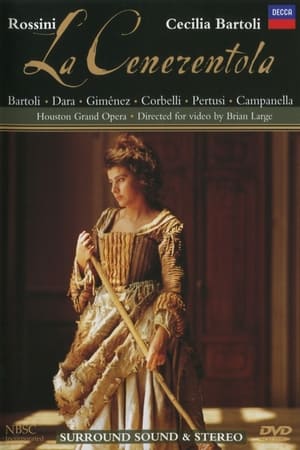 9.0
9.0Rossini: La Cenerentola(it)
La Cenerentola, ossia La bontà in trionfo (Cinderella, or Goodness Triumphant) is an operatic dramma giocoso in two acts by Gioachino Rossini. The libretto was written by Jacopo Ferretti, based on the fairy tale Cendrillon by Charles Perrault. The opera was first performed in Rome's Teatro Valle on 25 January 1817.---- IMDB id refers to Great Performances: Season 24, Episode 12 La Cenerentola (3 Apr. 1996) from Houston Grand Opera so release date is misleading.
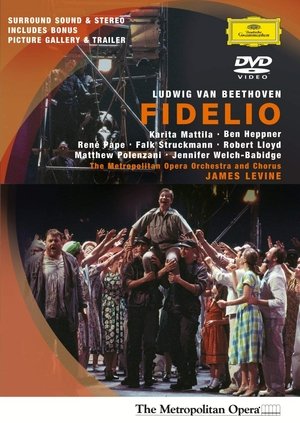 10.0
10.0Ludwig van Beethoven: Fidelio(en)
Two years prior to the opening scene, the nobleman Florestan has exposed or attempted to expose certain crimes of the nobleman Pizarro. In revenge, Pizarro has secretly imprisoned Florestan in the prison over which Pizarro is governor. The jailer of the prison, Rocco, has a daughter, Marzelline, and a servant (or assistant), Jaquino. Florestan’s wife, Leonore, came to Rocco’s door dressed as a boy seeking employment, and Rocco hired her. On orders, Rocco has been giving Florestan diminishing rations until he is nearly starved to death. Place: A Spanish state prison, a few miles from Seville; Time: Late 18th century.
 6.8
6.8Così fan tutte(it)
Who loves whom in Così fan tutte, Mozart’s and Da Ponte’s cruelly comic reflection on desire, fidelity and betrayal? Or have the confusions to which the main characters subject one another ensured that in spite of the heartfelt love duets and superficially fleetfooted comedy nothing will work any longer and that a sense of emotional erosion has replaced true feelings? Così fan tutte is a timeless work full of questions that affect us all. The Academy Award-winning director Michael Haneke once said that he was merely being precise and did not want to distort reality. In only his second opera production after Don Giovanni in 2006, he presents what ARTE described as a “disillusioned vision of love in an ice-cold, realistic interpretation”.
 7.0
7.0Cavalleria rusticana(it)
Franco Zeffirelli directs these two legendary La Scala productions telling tragic tales of jealousy. Mascagni's Cavalleria Rusticana features performances by Elena Obraztsova, Plácido Domingo, and Renato Bruson. Leoncavallo's I Pagliacci stars Teresa Stratas, Plácido Domingo, and Juan Pons. Both are conducted by George Pretre. This production of Pagliacci earned director Franco Zeffirelli the coveted Emmy as Best Director in the category of Classical Music Programming.
 7.0
7.0Operette(de)
A musician is offered a job in Vienna as stage director, but his disagreements with the aristocratic opera manager end in abrupt firing in spite of a mutual attraction. He's quickly engaged by another theatre and becomes famous for his lavish stage productions and fine acting, which begins their golden age with Suppé and Strauss.
Car Men(xx)
Car Men is a collaboration between the renowned choreographer Jíri Kylían and filmmaker Boris Paval Conen. Based on the opera 'CARMEN' by Georges Bizet they shot a hilarious and poetic short film in the destroyed landscape of a Czech brown coal mine. The actors in this film are older dancers from Kylían's troupe (around 50 years old) and the main prop is a 'TATRA 87', a famous car from 1937.
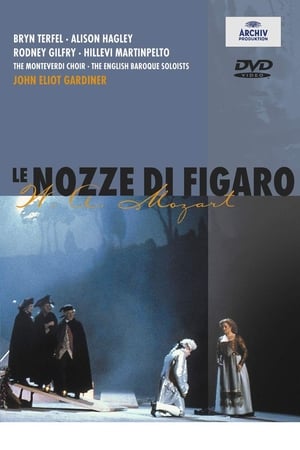 10.0
10.0The Marriage of Figaro(it)
This is a good video of "Figaro", but there are a couple of better ones available. The Bohm and the Pappano are better still due to the female members of the casts. The reason for buying this one is the "Figaro", Bryn Terfel. No one can top him today in that role. John Eliot Gardiner also stands out. Many of us have voiced their opinion that If the Metropolitan Opera would release it's 1998 version, that would be the one to get.
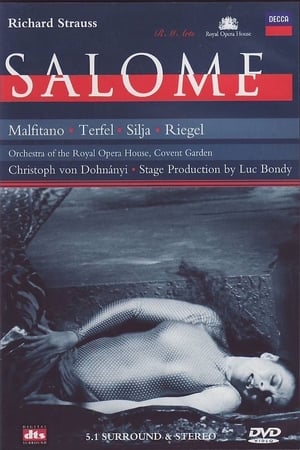 0.0
0.0Salome(de)
Richard Strauss's opera, from the Royal Opera House, Covent Garden.
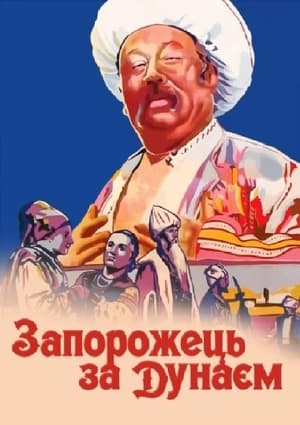 0.0
0.0A Cossack Beyond the Danube(uk)
A Ukrainian comic opera with spoken dialogue in three acts with music and libretto by the composer Semen Hulak-Artemovsky (1813–1873). The orchestration has subsequently been rewritten by composers such as Reinhold Glière and Heorhiy Maiboroda. This is one of the best-known Ukrainian comic operas depicting national themes.
 6.6
6.6Farinelli(fr)
The life and career of Italian opera singer Farinelli, considered one of the greatest castrato singers of all time.
 0.0
0.0The Metropolitan Opera: L’Amour de Loin(fr)
Robert Lepage’s dreamlike production, with its thousands of twinkling LED lights stretching across the stage to represent the sea, encapsulates the mystic feeling of L’Amour de Loin, Saariaho’s haunting opera of distant love. Eric Owens is Jaufré Rudel, a troubadour in 12th century France who has become tired of his hedonistic life and longs for an idealized love. Enter the Pilgrim (Tamara Mumford) who tells him his perfect love does, in fact, exist, far across the sea. She is Clémence, Countess of Tripoli (Susanna Phillips). The magic of the characters’ inner lives as they explore the meaning of love, longing, life, and death is heightened by Saariaho’s hypnotic and bewitching score, conducted by Susanna Mälkki.
 6.0
6.0Fidelio(de)
Beethoven’s only opera is a masterpiece, an uplifting story of risk and triumph. In this new production, conducted by Antonio Pappano, Jonas Kaufmann plays the political prisoner Florestan, and Lise Davidsen his wife Leonore (disguised as ‘Fidelio’) who daringly sets out to rescue him. Set in strong counterpoint are the ingredients of domestic intrigue, determined love and the cruelty of an oppressive regime. The music is transcendent throughout and includes the famous Act I Quartet, the Prisoners’ Chorus and Florestan’s impassioned Act II cry in the darkness and vision of hope. Tobias Kratzer’s new staging brings together the dark reality of the French Revolutionary ‘Terror’ and our own time to illuminate Fidelio’s inspiring message of shared humanity.
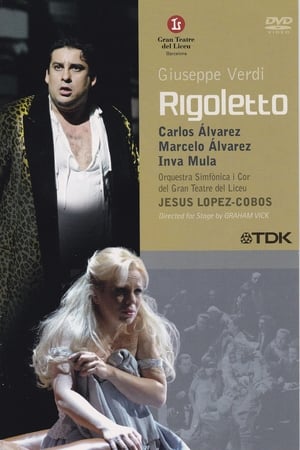 0.0
0.0Rigoletto(it)
In Rigoletto, the deformed figure of the hunchbacked jester at the Mantuan court acts as a foil to his cynical and powerful master, an unscrupulous philanderer contrasted with his cruel and unforgiving fool. Rigoletto encourages and welcomes the Duke's conquests, pitilessly mocking his victims until he discovers that the Duke has abducted the one person he genuinely loves, his own daughter. As a result, the character of the court jester is transformed into a tragic figure who, in spite of his evident immorality and malice, allows us to sense the devotion he feels for his daughter and his horror at being destroyed by the same despotic world as that which he himself has helped to create.
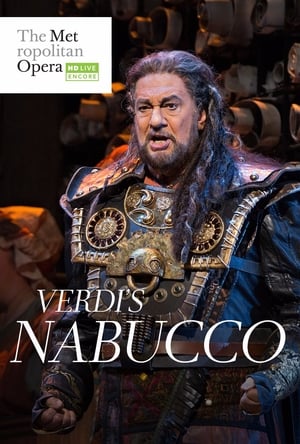 0.0
0.0Verdi: Nabucco(it)
The legendary Plácido Domingo brings another new baritone role to the Met under the baton of his longtime collaborator James Levine. Liudmyla Monastyrska is Abigaille, the warrior woman determined to rule empires, and Jamie Barton is the heroic Fenena. Dmitri Belosselskiy is the stentorian voice of the oppressed Hebrew people.
 7.1
7.1The Phantom of the Opera(en)
The deformed Phantom who haunts the Paris Opera House causes murder and mayhem in an attempt to make the woman he loves a star.
 8.0
8.0Amadeus(en)
Disciplined Italian composer Antonio Salieri becomes consumed by jealousy and resentment towards the hedonistic and remarkably talented young Viennese composer Wolfgang Amadeus Mozart.
 8.1
8.1Die Walküre(de)
The gorgeous and evocative Otto Schenk/Günther Schneider-Siemssen production continues with this second opera in Wagner’s Ring cycle. Hildegard Behrens brings deep empathy to Brünnhilde, the favorite daughter of the god Wotan (James Morris) who nevertheless defies him. Morris’s portrayal of Wotan is deservedly legendary, as is Christa Ludwig, as Fricka. Jessye Norman and Gary Lakes are Sieglinde and Siegmund, and Kurt Moll is the threatening Hunding. James Levine and the Met orchestra provide astonishing color and drama. (Performed April 8, 1989)
 5.5
5.5Puccini: Turandot(it)
Franco Zeffirelli's magnificient staging of Puccini's final opera - a fairy tale set in a mythical China - is one of the most popular in the Met repertory. In this Live in HD production, Maria Guleghina takes on the title role and Marcello Giordani is Calaf, the unknown prince. Marina Poplavskaya and Samuel Ramey co-star, and Andris Nelsons conducts in his Met debut.
 7.6
7.6Rabbit of Seville(en)
Behind the Hollywood Bowl stage which is playing the opera The Barber of Seville, Bugs Bunny flees into the backstage area with Elmer Fudd in close pursuit. Seeing his opportunity to fight on his terms, Bugs raises the curtain on Elmer, trapping him on stage. As the orchestra begins playing, Bugs comes into play as the barber who is going to make sure that Elmer is going to get a grooming he will never forget.
